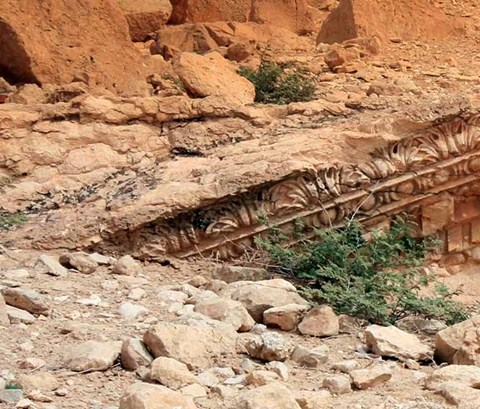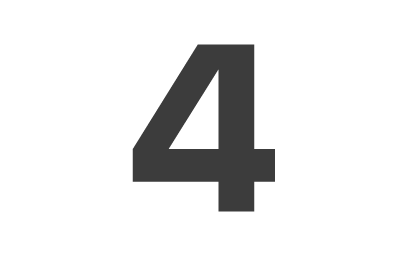
Ancient History and Archaeology BA
3-4 years
Start date:
Course information
Typical offer ABB
UCAS code VV41
Institute code L34
Taught by Archaeology and Ancient History

1st in the UK for Classics and Ancient History (The Times UK University Rankings 2026)

Ranked 2nd in the UK for subjects aligned to Classics for ‘overall positivity’ in the NSS 2025. (Based on University of Leicester analysis using the Times Higher Education NSS 2024 methodology applied to the NSS 2025 data of aligned subjects)

Ranked 4th in the UK for subjects aligned to Archaeology for ‘overall positivity’ in the NSS 2025. (Based on University of Leicester analysis using the Times Higher Education NSS 2024 methodology applied to the NSS 2025 data of aligned subjects)
Course description
Course description
During your Ancient History and Archaeology BA degree, you will develop an understanding of societies and cultures in the past, with an emphasis on Ancient Greece and Rome, as well as the wider ancient world in North Africa and the Near East. You will examine classical texts and material remains in order to understand these peoples and their legacies.
Practical experience is a key part of the archaeological part of this degree. You will have the opportunity to participate in fieldwork and field trips and gain skills in recognising past material culture. We have specialist facilities and an outstanding range of equipment for hands-on teaching and research in science-based analytical techniques, including our state-of-the-art human bone laboratory, environmental laboratory, zooarchaeology laboratory, and ceramics laboratory.
You will also have the opportunity to gain experience with local heritage organisations, schools and our professional archaeological unit (ULAS) through Year 2 and 3 module placements and our acclaimed accredited internship programme.
Our School of Archaeology & Ancient History hosts a world-class, international team of scholars engaged in cutting-edge research and teaching in our twin disciplines of Ancient History and Archaeology. We have a long history of making high-impact, world-leading discoveries, of which you could be a part. Our staff work all over the world on research projects – in Britain, Ireland, France, Italy, Greece, Central Europe, Egypt, North Africa, Sudan, Iran, Syria, Pakistan, South East Asia, China, Australia, the USA, the Caribbean and elsewhere – and we cover all periods, from the earliest humans to the recent past.
Entry requirements
Entry requirements
- A/AS-levels: ABB. Two AS-levels can be considered in place of one A-level. General Studies or Critical Thinking accepted.
- EPQ with A-levels: BBB + EPQ at grade B.
- Access to HE Diploma: Pass Diploma with 45 credits at level 3, 30 of which must be at Distinction.
- International Baccalaureate: Pass Diploma with 30 points.
- BTEC Nationals: Pass Diploma with DDM.
- T Levels: Merit. All T Levels considered.
Other official national and international qualifications considered from across the world. You can review some of the qualifications we accept on our countries page and English Language equivalencies.
If your qualification or country is not listed, please contact us for more information, including the name and result of the qualification you have studied.
Second Year Entry may be possible with suitable qualifications.
Foundation Year available
If you don’t quite meet the above entry requirements, why not consider our Social Sciences, Arts and Humanities Foundation Year?
Flexible entry requirements
We welcome applications from motivated students whose predicted grades are slightly below our standard entry requirements. We understand that predicted grades are not always an accurate reflection of your final results, and we’re happy to consider your application. Although we can’t guarantee an offer due to the high volume of applications, if you’re eligible, we may still offer you a place based on our standard requirements.
Contextual offers
The University of Leicester is committed to providing equitable opportunities for all applicants from all backgrounds. We make contextual offers to support students who may be impacted by the area they live in, their personal circumstances or who have completed one of our progression programmes. These offers are usually one or two grades lower than the standard entry requirements. To qualify for a contextual offer, you must apply for an eligible course and meet specific criteria – check if you’re eligible.
Selection process
When considering your application, we will look for evidence that you will be able to fulfil the objectives of the course and achieve the standards required. We will take into account a range of factors including previous exam results.
Applicants are not normally interviewed. If you receive an offer you will be invited to visit the department.
English Language Requirements
IELTS 6.5 or equivalent. If your first language is not English, you may need to provide evidence of your English language ability.
If you do not yet meet our requirements, our English Language Teaching Unit (ELTU) offers a range of courses to help you to improve your English to the necessary standard.
International Qualifications
Find your country in this list to check equivalent qualifications, scholarships and additional requirements.
Countries listFees and funding
Fees and funding
UK Students
Starting in 2026
- £9,790 in your first year, subject to Parliamentary approval.
- For the 2027/28 academic year, the Home UK tuition fee is expected to be £10,050, subject to Parliamentary approval. Further increases are anticipated to be implemented automatically through government legislation, therefore it is likely that your tuition fees will rise for each subsequent year of your studies.
Find out more about tuition fees, including year abroad, placement years, scholarships and funding.
International Students
Starting in 2026
- £21,950 per year
If you are resident outside the UK and the Republic of Ireland, you will need to pay a deposit to secure your place. This will be subtracted from your total tuition fee.
Find out more about tuition fees, including year abroad, placement years, scholarships and funding.
Careers and employability
Careers and employability
You will gain real-world experience through hands-on modules, including the Heritage Field Project in the heritage sector and teaching placements in local schools with qualified teachers. Practical experience is central, with further opportunities in your third year to complete placements with heritage organisations or schools, as well as take part in an internship. These experiences are ideal preparation for careers in education, heritage, or related fields.
You can participate in theLeicester Award for Employability, which helps highlight skills gained through your degree. In 2023/24, 86.2% of History students completed the Leicester Award Gold, well above the university average, reflecting our strong focus on career readiness (History UG Skills and Employability Data, September 2024). Five years after graduation, 87.3% of UK history graduates are in sustained employment or study, with median earnings of £27,200 (LEO Graduate Outcomes Provider Level Data, 2021-22).
Throughout your degree, you will develop key transferable skills in research, critical analysis, communication, cultural competence, and time management (Alumni Centenary Census, 2022). You will connect with employers, join workshops, and gain practical experience through volunteering or placements. This prepares you for diverse careers in sectors like diplomacy and international organisations, heritage, research, government, museums, law, and education.
Our graduates have secured roles* at leading organisations, including:
- Adecco
- Bank of America
- BBC
- CFA Archaeology
- Chatsworth
- Civil Service
- Commonwealth War Graves
- English Heritage
- Heritage Fund
- Home Office
- The History of Parliament
- The Princes Foundation
- The National Trust
- York Archaeological Trust
*Graduate Outcomes Survey
You can enhance your degree by undertaking a Year Abroad, which offers immersive cultural experiences and the chance to develop global skills. This opportunity helps you build valuable competencies, broaden your worldview, and improve your career prospects after graduation.
At Leicester, our award-winning Careers and Employability Service works closely with the Ancient History and History team and your personal tutor to help you identify your strengths and explore career pathways. Our specialist advisers support you with CVs, interviews, placements and volunteering opportunities, guiding you every step of the way. You can also tailor your final research project to your own work experience, making your degree more relevant to your goals. Our lifetime support continues after graduation to help you achieve your professional ambitions.
Related courses
Related courses
Sustainable Development Goals
Sustainable Development Goals
We are committed to providing skills and knowledge to help prepare you tackle global challenges. We have mapped our undergraduate degrees for learning which aligns to the 17 UN Sustainable Development Goals.
This degree includes learning which relates to the following UN Sustainable Development Goals:
- Goal 11: Sustainable cities and communities
- Goal 13: Climate action
- Goal 16: Peace, Justice and Strong institutions
Course structure
Year 1
Year 1
You will study the archaeological past from the origins of the human species to the 20th century, learning the aims and methods of archaeology along the way. You will also gain practical experience in a wide variety of archaeological skills. In early Summer, you will take part in a local archaeological fieldschool. Recently we have run fabulous fieldschools at Bradgate Park with sites from the Mesolithic to the historic period, including the Tudor mansion of Lady Jane Grey (England's famous nine-day Queen), and the Iron Age hillfort of Burrough Hill. And in Ancient History you will gain key insights into the span and names of ancient Greek and Roman history, and critically explore the types of textual guides to these cultures.
Modules
- Approaching Ancient Evidence (Greek)
- Introduction to Greek History
- An Introduction to World Archaeology BC
- Archaeology: The Essentials
- Approaching Ancient Evidence (Roman)
- Introduction to Roman History
- An Introduction to World Archaeology AD
- Debates in Archaeological Heritage
The modules listed reflect those currently available to students. Every year, we review our modules and their content to ensure that our courses maintain the best academic and student experience possible. Whilst this does mean elements of your course may change in future academic years, it ensures your course is giving you a research-inspired education and preparing you for your future.
Year 2
Year 2
In your second year, for your Ancient History strand, you will choose two aspects of Greek and Roman history to study in detail. These are taught through a combination of lectures and seminars, with a strong emphasis on encountering ancient primary sources in translation. You will also take two core modules focusing on sources and methods in Ancient History and archaeological theory that will give you the key skills you need to succeed in these subjects. At the end of the year you will be able to participate in a research excavation.
Core modules
Option modules
You will choose two option modules, one module from each of the lists below.
Ancient History modules
Archaeology modules
- Neolithic, Bronze Age, and Iron Age Britain and Ireland
- Heritage Skills
- Environmental Archaeology
- Artefact Analysis
You will then choose a further three option modules from the lists below. Two should be from Ancient History and one from Archaeology.
Ancient History modules
- Classical and Hellenistic Greek States
- The Ancient Near East
- Greek History in 40 Lives
- The Latin World: Ancient, Medieval and Modern
Archaeology modules
- The Medieval Mediterranean World
- Archaeology of the Roman Empire
- Archaeological Survey and Geomatics
- Living in Towns: Archaeological Approaches to Medieval Urbanism
The modules listed reflect those currently available to students. Every year, we review our modules and their content to ensure that our courses maintain the best academic and student experience possible. Whilst this does mean elements of your course may change in future academic years, it ensures your course is giving you a research-inspired education and preparing you for your future.
Year Abroad (optional)
Year Abroad (optional)
We’ll make sure you have everything you need for your future career: not just by awarding you a high quality degree, but also by helping you to develop the skills, knowledge and confidence you need to make your mark in the world as a Citizen of Change. One way you can do this is by opting to take a Year Abroad between Years 2 and 3 of your degree.
Studying abroad is not just for people who are interested in travelling and meeting new people. It is about acquiring life skills that are becoming increasingly significant for a wide range of jobs in our modern globalised society. Whether you go on to a career in the private, public or third sector - or plough your own furrow as an entrepreneur – you will find the experience invaluable.
For more information, including a list of destinations, please visit our Study Abroad website.
Please note
- A year spent abroad still incurs a tuition fee, but this is much lower than for a normal year at Leicester. See the Fees and Funding tab of this page for details.
- You may be eligible for a travel grant from Student Finance England.
- Places are offered on a competitive basis, and eligibility is dependent on your academic performance in Years 1 and 2.
- Language courses, at beginners or advanced level, are available through our Languages at Leicester scheme.
The modules listed reflect those currently available to students. Every year, we review our modules and their content to ensure that our courses maintain the best academic and student experience possible. Whilst this does mean elements of your course may change in future academic years, it ensures your course is giving you a research-inspired education and preparing you for your future.
Final Year
Final Year
A core focus of your final year will see you write a dissertation on a topic of your choice that may be focused on either Ancient History or Archaeology, although you are encouraged to use both historical and archaeological sources in your chosen theme. You will also choose four option modules from a wide selection. These are chiefly taught in smaller group sizes, which will help you to handle historical problems at a more advanced theoretical level, and to refine your skills in evaluating evidence and drawing conclusions from it.
Core modules
- Fieldwork 2
- Archaeology Dissertation (double module)
Option modules
Choose two option modules from:
- Oracles. Dreams and Omens: Divination in the Greek World
- Archaeology and Ancient History in Education
- Conflict, Heritage and Archaeology
- Archaeology and Materials
- Lived Experience in Imperial Rome
- Late Antique North Africa
Plus a further three option modules from:
- Great Greek Monuments
- My Empire Reborn: Justinian and his Age
- Babylonian Sources
- Zooarchaeology (the archaeology of animals)
- Human Skeletal Analysis
- The Archaeology of Human Evolution
- Classical Worlds: Translation and Reception
- The Archaeology of Colonialism in the Americas
The modules listed reflect those currently available to students. Every year, we review our modules and their content to ensure that our courses maintain the best academic and student experience possible. Whilst this does mean elements of your course may change in future academic years, it ensures your course is giving you a research-inspired education and preparing you for your future.
Why Leicester?
Job prospects are excellent: 98% of our Ancient History students are employed (or studying for a Masters degree) six months after graduating. (DLHE)
The broad range of interests among our many staff means you won't be limited geographically or temporally, with specialists ranging from the ancient Mediterranean and beyond, to 18th century slavery studies and modern US politics.
Our academic staff have written or edited dozens of books and publish regularly in major national and international journals. Where other people only get to read what our experts think, you will be working directly with them, learning from them in lectures and questioning them in seminars.
Through the University's ‘Languages at Leicester’ programme you can study ancient languages like Latin or Greek or learn or enhance your modern language skills, from French to Spanish to Russian. Courses run from beginner to advanced level and can really add to your CV.
Reading list
See the types of texts you might read, over the summer, to get a feel for the course and arrive prepared and ready to go.
View a reading list for Archaeology and Ancient History degrees
Teaching and learning
Teaching
In this exciting joint programme, you will split your time between archaeology and ancient history and learn through a mix of lectures, seminars, workshops, one-to-one supervision and hands on activities, both on and off campus. Lectures and practical classes with world- leading experts will introduce you to the latest research in your subject area, while the seminars provide you with the opportunity to engage in debate with your peers. You will also have the opportunity to gain practical experience out in the field, in our labs, and through site-visits local to Leicester and beyond.
With an emphasis on small group teaching, the staff and students in the School get to know each other well providing excellent support for your academic studies. In addition, you will be given a personal tutor who can provide one-to-one advice and assistance on academic and personal issues.
In your third year you will have the opportunity to write a dissertation focusing on an area of archaeology and ancient history that particularly fascinates you. The dissertation is the culmination of your academic studies: it fosters independence of thought, project-planning and organisation skills, and allows you to develop and demonstrate all the skills and knowledge you have acquired throughout your studies. With one-to-one supervision that will guide you through the various stages of formulating, researching and writing, you will develop your academic expertise and delve deeper into a topic which fascinates you.
Assessment
Our assessments allow you to develop a range of academic and professional skills throughout your degree. You will be assessed through essays, reports, presentations, and practical activities. You will have the opportunity to work with case studies, texts, sites and artefacts, resulting in a range of creative and authentic, real-world forms of assessment. We also have a sector-leading range of internships and placements, and there is the option to study abroad for a year, if you want to.
Independent learning
When not attending lectures, seminars or other timetabled sessions you will be expected to continue learning independently through self-study. Typically, this will involve reading journal articles and books, working on individual and group projects, undertaking research in the library ((in person or via online resources), , preparing coursework assignments and presentations, and preparing for exams. To help with your independent learning, you can access the Library and our many social study spaces in halls of residence.
Your contact hours will depend on the option modules you select. However, we have a range of clubs and volunteering opportunities which mean you can spend extra time in and around the subjects you love! You can see details of the contact hours (and the types of topics covered) on individual module pages.
Academic support
The University's Centre for Academic Achievement provides help in the following areas:
- study and exam skills
- academic writing
- presentations
- dissertations
- numerical data skills
- referencing sources
The University's AccessAbility Centre offers support and practical help for students with dyslexia or other specific learning difficulties, including physical, mental health or mobility difficulties, deafness, or visual impairment.
Teaching staff
Across your degree, you will be taught by an experienced teaching team whose expertise and knowledge are closely matched to the content of the modules offered. PhD research and postdoctoral scholars who have undertaken teacher training may also contribute to the teaching of seminars under the supervision of the module leader. Our teaching is strongly informed by the research we do. You can learn more about our staff and their wide-ranging expertise by visiting our staff profiles.
Apply now
| Course | Qualification | Duration | UCAS Code | Availability |
|---|---|---|---|---|
| Course Ancient History and Archaeology | Qualification BA | Duration 3 years full-time | UCAS Code VV41 | Availability How to apply |
| Course Ancient History and Archaeology with Year Abroad | Qualification BA | Duration 4 years full-time | UCAS Code VV41 | Availability How to apply |
Data about this course

Having that connection with the physical remains of the past really captures the imagination.




